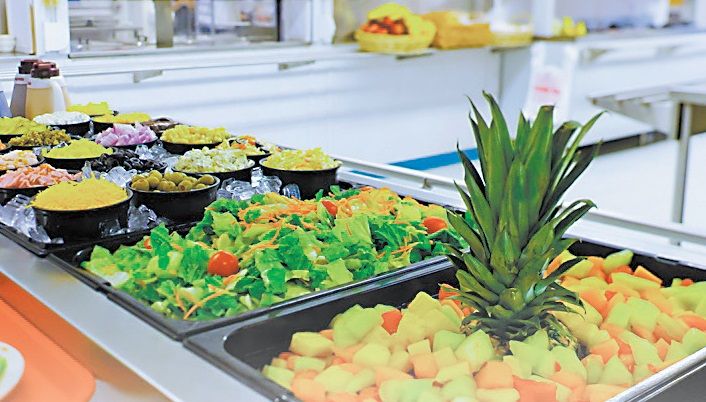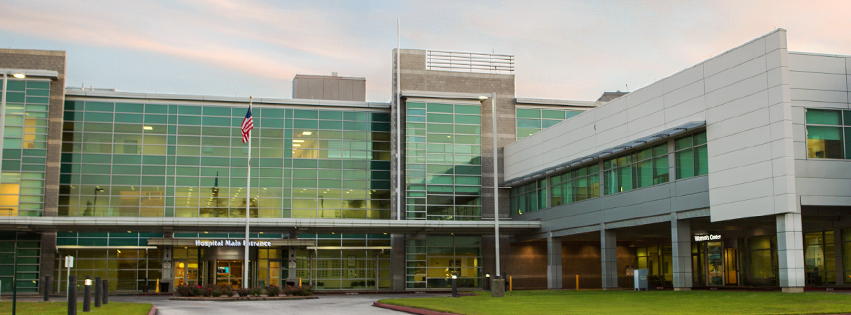
UPDATED: Injured football player ‘responding’, but still in critical condition
September 30, 2015
Alfreda Richoux
October 6, 2015Working on an offshore rig isn’t easy.
But that doesn’t mean that hospitality is lost on the oil and gas industry. There are countless companies who employ men and women with one sole purpose: to make sure that rig workers are comfortable and feel like they are at home – even if several miles away from the shore.
Offshore catering and hospitality companies bring a slice of home to oil and gas employees who often work long hours in temperatures that are sometimes too hot or too cold.
The hospitality companies cook, clean, do laundry and anything else that allows workers to relax and be at ease during their downtime at work.
“This industry has thousands of individuals who are selfless and who work to take care and bring comfort to the people working on the rigs,” Louisiana Oil and Gas Association President Don Briggs said. “Their contributions aren’t taken for granted. Things wouldn’t be able to go as seamlessly as they do on those rigs without folks working to cook and clean and give hospitable conditions to workers.”
A lot of work is done on an oil rig besides the actual process of extracting the oil from the ocean floor.
Sonoco is a Houma-based service and hospitality company that works on offshore rigs throughout the Gulf of Mexico.
Sonoco Vice President of Operations Mark Hepburn said that the easiest way to appreciate the contributions made by hospitality companies is to think of an offshore rig like its own, individual town floating in the Gulf of Mexico.
This nautical city has no connection to land, but still has hundreds of people that inhabit it on any given day.
Hepburn said the amount of food that is cooked offshore is “a huge number.” He did a little math to break down what the average rig might go through in food throughout the year.
“Let’s say your rig has 200 people,” Hepburn speculated. “At three meals a day, that’s 600 meals served a day, plus snacks. So on your average day, you’re going to serve between 400 and 450 pounds of meat a day, and that’s just raw meat alone – not counting rice, fruits, vegetables, pastas or anything else. That’s 82 tons of meat a year served on the average rig.”
The biggest challenge of preparing that much food each day is dealing with the unpredictable work schedules that workers often have when laboring offshore.
Hepburn said that a rig’s galley works at flexible hours to accommodate workers who might end a shift at night, but will still be in need of a meal.
He said that no mouth will ever get unfed – no matter what time or hour that he/she is craving food.
“It’s never hard to find food,” Hepburn said. “There’s always something somewhere.”
And there’s a ton of variety, as well. Offshore galley hospitality cooks prepare several multi-course meals a day to ensure that everyone aboard has a taste for something that’s on the menu.
“Not everyone eats or likes the same things,” Hepburn said. “That’s accounted for.”
The Sonoco official said that some rigs even take into account dieting, diabetes and other things when putting together the list of things for hospitality workers to whip up.
If not cooking, Sonoco and other hospitality companies are busy doing laundry, cleaning rigworker’s rooms and sheets and doing whatever possible to give a hotel-like feel to the worker’s stay.
“We are a lot like a hotel business in many ways,” Hepburn said. “We do all of the same things they do.”
But like everything else in the industry, a downturn in the price of oil is impacting the amenities that are offered to workers.
Hepburn said that Sonoco hasn’t seen much change in its business, because “catering is only a small expense in the rig’s actual day-to-day budget.” He added that companies have mostly cut down on product variety in the kitchen.
“Every rig has candy,” Hepburn said. “Now, they just might not have every, single brand of every, single kind of candy that every person on the rig requested and wanted.”
But others in the industry didn’t paint as bright of a picture.
A local worker who works for a company that ships groceries and supplies to offshore rigs and vessels has said that business has taken a hit.
The worker, who asked that he and his employer not be named out of fear that it would affect relationships with clients, said that offshore boats and rigs are cutting costs when making their grocery purchases.
“Boats used to order crab legs, lobsters and steaks,” the grocery supply employee said. “They used to be pretty lax with their food budgets, but not anymore. The price of oil dropping has put less people on boats and rigs, and companies won’t go over their budgets by a penny.”
He then said that even through the struggles, supply and hospitality remains big business.
“There are some vessels that buy as much as $30,000 per week in groceries with us,” he said. “They’re just ordering less ribeyes and more frozen pizzas.”
Port Fourchon Executive Director Chett Chiasson agreed. He said that folks don’t understand the trickle-down effect that a slow oil and gas industry has on the entire community.
“It affects workers in the industry,” he said. “It affects stores. It affects car dealerships. It affects restaurants. It affects movie theaters. It lowers sales taxes, which affects everything in our community. The things that happen in Port Fourchon and offshore drive what happen up the road and in our communities.”












